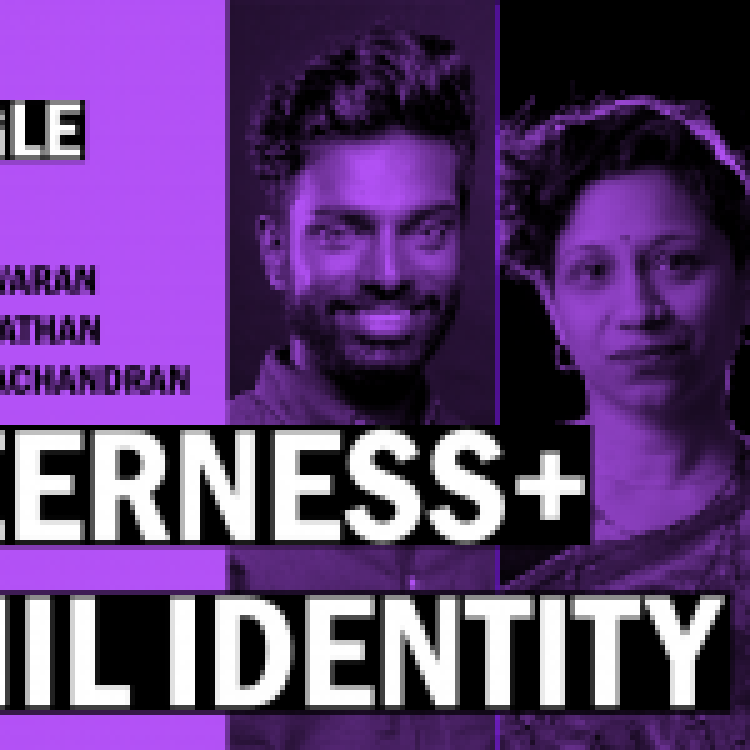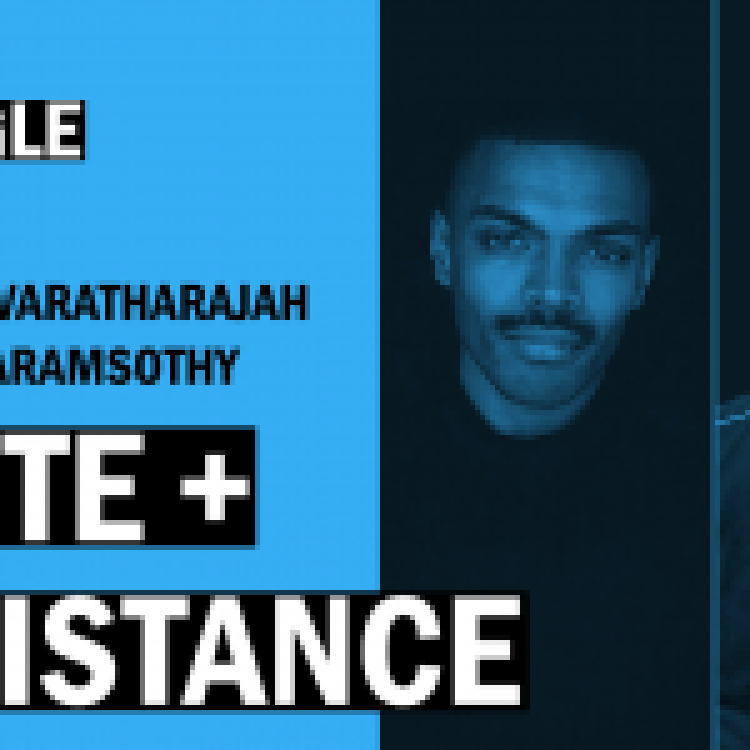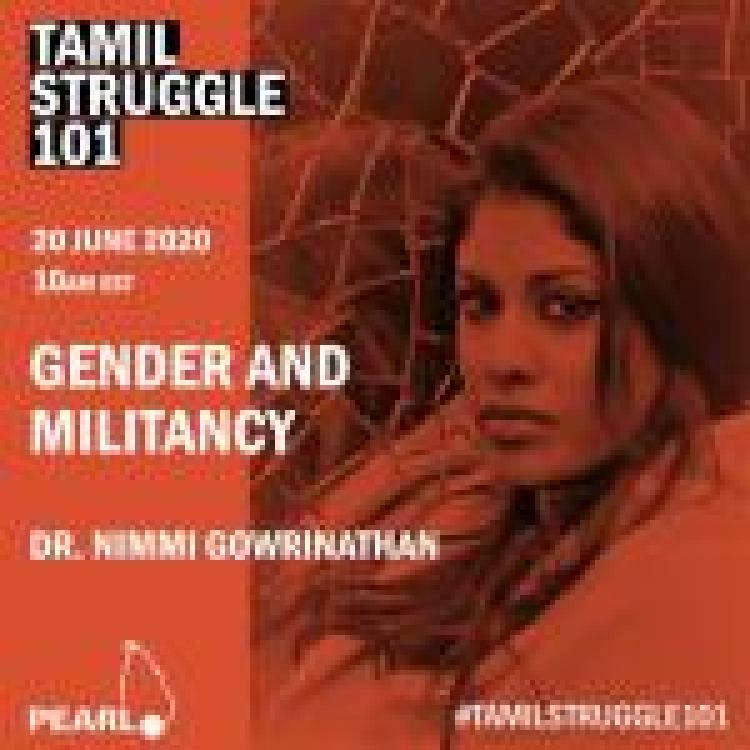Speaking with People for Equality and Relief in Lanka (PEARL), both Sivakami Rajamanoharan, PEARL’s senior Advocacy Officer and former Tamil Guardian Editor-in-Chief, as well as Roshni Raveenthiran, a Tamil educator and community organiser, delivered an enlightening discussion on the role of female Tamil activists; the difficulties they face; and the means of by which the Tamil community can empower women.
Entering Tamil spaces
Commenting on how she got involved in the Tamil political space, Rajamanoharan notes, that from a very early age she grew up with people in her house constantly talking about politics. Which spurred a natural interest in the subject, however, this is not an “experience or opportunity that lots of Tamil girls have”.
“Tamil society at large”, she notes, conditions us to view politics as the domain for “men and boys” not women. “Girls are effectively told that politics is not womanly, not feminine, it's not becoming if you think of yourself as getting married one day”, she adds.
This is reflected in Tamil cinema where desirable women are presented as “meek and shy” as opposed to “strong, independent, and opinionated” which is what we want women activists to be. This is also reflected in language as Tamil female activists are often the recipients of abusive and derogatory labels.
She also highlights that Tamil culture often “physically segregates young girls” from political discussions at home. Girls are often positioned in the kitchen helping their mothers make tea whereas men will sit together and drink alcohol and talk, “by virtue of the alcohol […] women are kind of forced into their own little space”. This creates a “segregated household where different discussions are happening and girls”. Rajamanoharan also notes that this aversion to political conversations trickles down generations as this cultural norm is embedded in Tamil society. Breaking this division is especially important.
Raveenthiran comments on this in her discussion, noting the importance of having a “safe space for a woman to actually comfortably talk about leadership and have these spaces without feeling isolated […] lonely or constantly thinking that we need to reassure ourselves that we can actually talk about politics”.
Tamil organisations could also improve in terms of their outreach and being more accommodating for women. This requires greater consideration for “where and when” events are taking place. For example, given that Tamil society discourages women from going out in the late evening or at night, events which do so effectively discourage their attendance. There must also be greater attention given to the demands placed on women whether that be their work or childcare which they are often expected to undertake.
These events are also important for Tamil boys to grow up to see it as the norm for women to be opinionated and argumentative and to understand this as a positive thing.
Rajamanoharan notes that the first Tamil political events she attended were heavily dominated by older men and that the women she saw in attendance were almost always “the wife of or the daughter of a man who was present”, herself included. Raveenthiran notes that whilst these are issues which Rajamanoharan experienced in the 90s, they are very much present today.
Speaking on female role models, Rajamanoharan highlights the importance of not putting Tamil female activists on a pedestal but instead “recognising these everyday women whose activism is celebrated but is also allowed to exist within other identities”, such a partner, mother, or simply an individual.
Gender and LGBT issues
Both Rajamanoharan and Raveenthiran highlight their own privilege when discussing issues of gender and the issue surrounding the erasure of LGBT voices in the Tamil community.
During Raveenthiran talk she notes that the difficulties that she faced in trying to uplift LGBT voices and establish queer events which were often met with criticism for being “too western”.
“Why are we excluding certain groups when we are talking about the self-determination of all Tamils”, she asks.
Avoiding tokenism
An issue Rajamanoharan raises is that it is important for Tamil organisations to not throw women into the deep end but rather ensure that they have adequate opportunities, training, and mentoring for women.
“There’s no sense asking a woman can you do this TV interview which is going to happen in an hour’s time when you’ve never previously encouraged her to do even a low-key public speaking event. That’s not realistic”, states Rajamanoharan.
Raveenthiran’s talk discusses her own experience of entering Tamil political spaces as a woman.
She notes that there was a clear issue of tokenism as it was “almost like a checklist for men to say we have a strong woman who can talk about the experience of gender-based violence, they can sexual violence, and it was something they ticked off”.
She further discusses a panel she was asked to lead at the age of 20. When harassed and slut-shammed by an older Tamil man at the panel, she notes, that the men who had pushed her to talk at the panel provided no support for her. Raveenthiran also highlights the inherent difficulty and emotional labour involved for women to speak about issues of “gender genocide and sexual violence”.
Concluding her speech, Rajamanoharan states:
“How do we raise our daughters? To be brave and confident and fight for our collective right.
How do we raise our sons? To view this as the norm but also as the best thing for the Tamil struggle”.
Online abuses
Commenting on the harassment female Tamil activists face,
Rajamanoharan takes not of not only the “sheer quantity” but also the “gendered nature” of the abuse women face. This can range from microaggressions, verbal abuse, and even direct threats of rape and sexual assault.
This abuse Rajamanoharan, notes, is “not [only] directed at their politics but it’s also directed at their person, this is particularly true when it's from our own community”.
Rajamanoharan further adds that;
“What a woman’s wearing; how she did her hair; how much makeup she wore or didn’t wear; what she drank; who she socialised with; these points are brought up as criticism”.
Raveenthiran also raises this point as she notes;
“We are taught about how Tamil women combated gender stereotypes however it was these same gender stereotypes that were policed over us”.
The example raised is the demand that Tamil women wear saris during Maaveerar Naal.
Raveenthiran further commented on the abuses women faced when they took on leadership roles:
“I adopted a lot of leadership roles and the violence that comes with holding space and being a leader as a Tamil woman was something I had to go through […] It was something I saw women before me and after me go through as well”.
These experiences, Rajamanoharan explains, acts as an active deterrent for Tamil women who wish to engage in the political sphere as well as a punishment for women who are vocal.
Rajamanoharan details a conversation she had with one young Tamil woman who told her:
“I had to give up my political career because no one would want to marry you if you continue at this level of political activism”
Rajamanoharan notes.
“As angry as that makes me, I could see that this fear from our mothers, aunties, or grandmothers, stems from a reality within society where women who are seen as powerful or successful are viewed as essentially less desirable”.
Supporting Tamils in the diaspora
Raveenthiran’s talk also situates the Tamil diaspora experience within a broader context of caste, class and systems of government oppression.
Growing up in a low-income neighbourhood, Raveenthiran notes, that there are many issues in the Tamil community which we don’t talk about. These include issues of domestic and sexual violence as well as food insecurity, mental health, and homelessness.
Commenting on these issues she asks;
“How are Tamil people going to create this urgency over what’s going on back home if they don’t have food to eat? If they don’t affordable housing? If they don’t have enough supports?”




